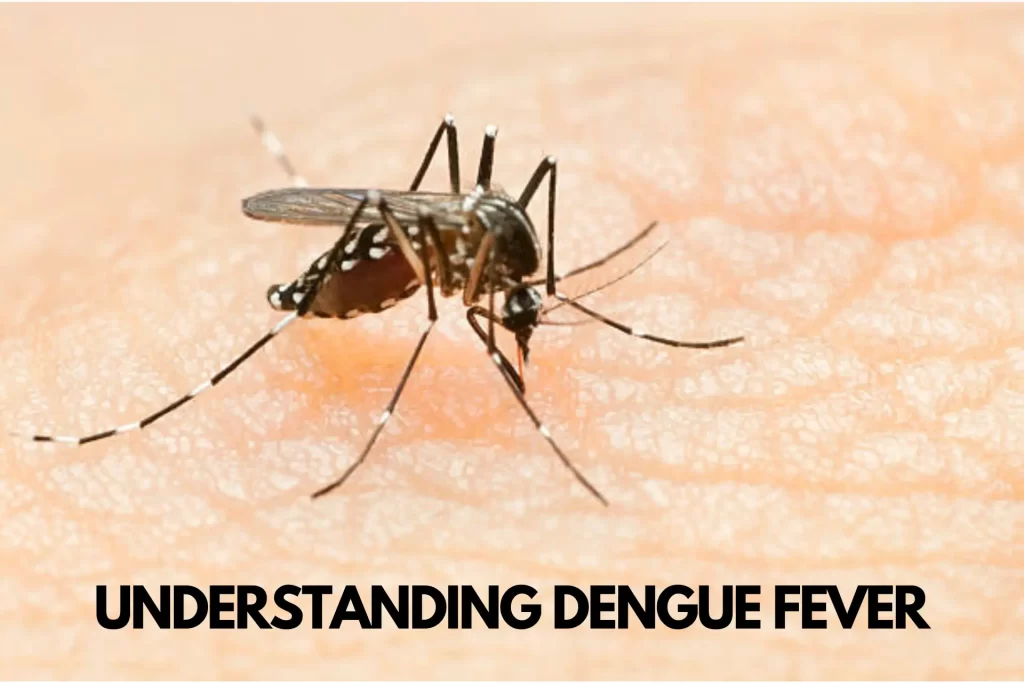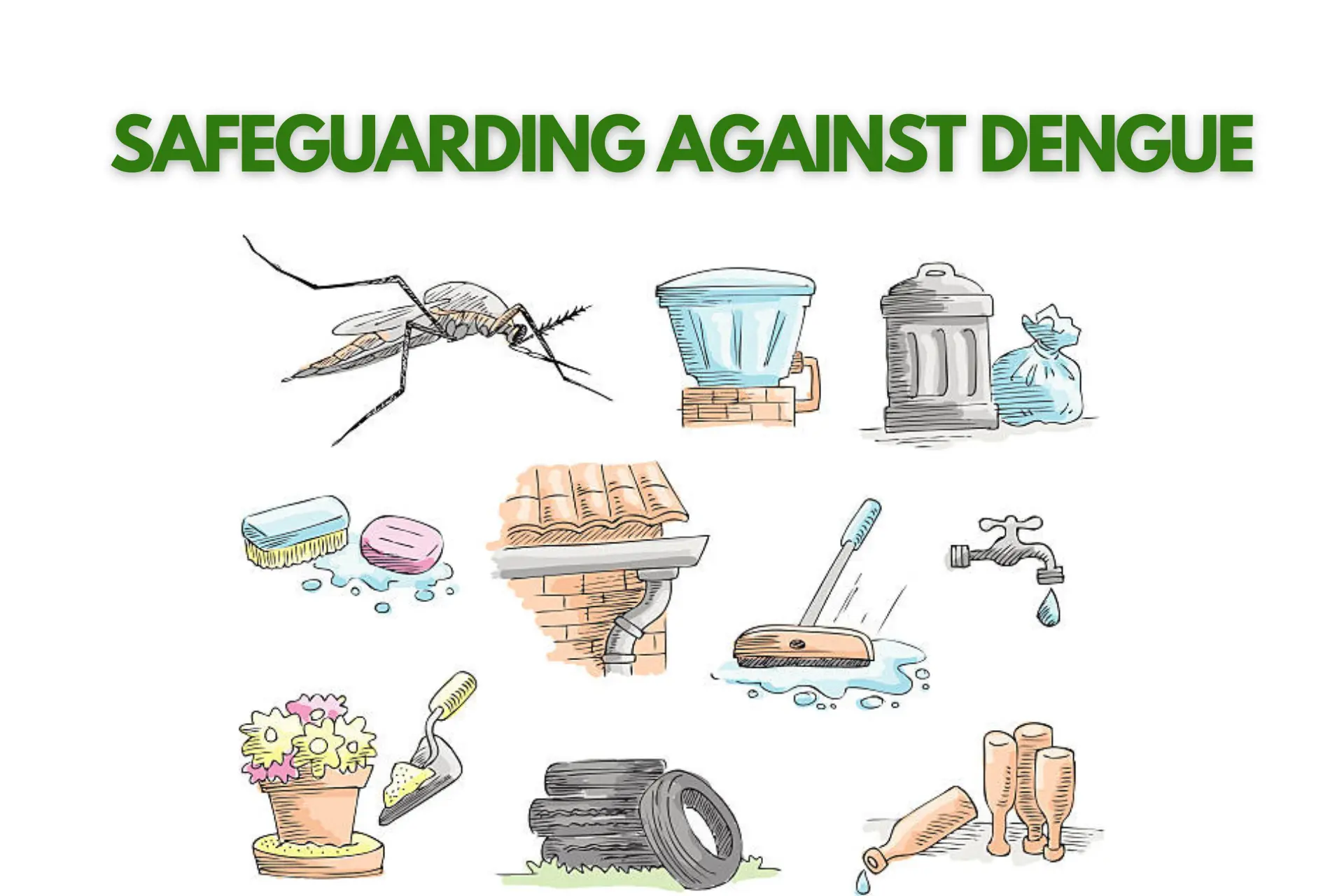In recent years, the threat of dengue fever has become increasingly prevalent across the globe, particularly in tropical and subtropical regions. With its debilitating symptoms and potential complications, it’s crucial to arm oneself with knowledge on how to prevent and manage this mosquito-borne illness.
In this comprehensive guide, we delve into effective strategies to safeguard against dengue while shedding light on the nature of the disease and offering insights on recovery.
Table of Contents

Understanding Dengue Fever
Dengue fever is a viral infection transmitted primarily by Aedes mosquitoes, particularly Aedes aegypti and Aedes albopictus. These mosquitoes thrive in warm, humid environments, making tropical and subtropical regions particularly susceptible to dengue outbreaks.
The virus belongs to the Flaviviridae family and has four distinct serotypes, namely DEN-1, DEN-2, DEN-3, and DEN-4. Dengue fever manifests through symptoms such as high fever, severe headaches, joint and muscle pain, rash, and fatigue, with potential complications including dengue haemorrhagic fever and dengue shock syndrome.
Preventive Measures from Dengue
1. Eliminate Breeding Sites: To mitigate the risk of dengue, it’s crucial to eliminate stagnant water sources where mosquitoes breed. Regularly emptying and cleaning containers such as flowerpots, bird baths, and gutters can significantly reduce mosquito breeding grounds. Incorporating larvicides in water storage containers can also prevent mosquito larvae from developing.
2. Use Mosquito Repellents: Applying mosquito repellents containing DEET, picaridin, or oil of lemon eucalyptus on exposed skin can effectively repel mosquitoes. Additionally, utilising mosquito nets while sleeping and installing screens on windows and doors can provide added protection against mosquito bites, particularly during peak biting hours around dawn and dusk.
3. Wear Protective Clothing: Wearing long-sleeved shirts, trousers, and socks can serve as a physical barrier against mosquito bites, reducing the risk of dengue transmission. Opting for light-coloured clothing can also help deter mosquitoes, as they are attracted to dark colours.
4. Maintain a Clean Environment: Keeping outdoor areas clean and well-maintained can discourage mosquito breeding. Regularly mowing the lawn, trimming shrubs, and disposing of yard waste can minimise potential mosquito habitats.
5. Community Engagement: Engaging with local communities to raise awareness about dengue prevention and control measures is paramount. Collaborating with authorities to implement mosquito control programmes, such as fogging and spraying insecticides in high-risk areas, can help curb dengue outbreaks.
Recovery from Dengue Fever
The duration of dengue fever typically ranges from 2 to 7 days, although some individuals may experience symptoms for up to 2 weeks.
During this period, it’s essential to focus on rest, hydration, and symptomatic relief. Adequate fluid intake, including water, oral rehydration solutions, and electrolyte-rich beverages, can help prevent dehydration caused by fever and vomiting.
Over-the-counter pain relievers such as paracetamol can alleviate fever and discomfort, but aspirin and non-steroidal anti-inflammatory drugs (NSAIDs) should be avoided due to the risk of bleeding complications.
Conclusion
In conclusion, preventing dengue fever requires a multifaceted approach encompassing environmental management, personal protection measures, and community engagement.
By eliminating mosquito breeding sites, using repellents, wearing protective clothing, maintaining cleanliness, and fostering community awareness, individuals can significantly reduce the risk of dengue transmission.
Furthermore, prioritising rest, hydration, and symptomatic relief is essential for a speedy recovery from dengue fever. By adopting these preventive and management strategies, we can collectively combat the threat of dengue and safeguard public health.
In the battle against dengue, knowledge is our most potent weapon. Stay informed, stay vigilant, and together, we can prevent the spread of this debilitating disease.




